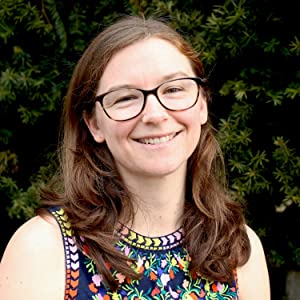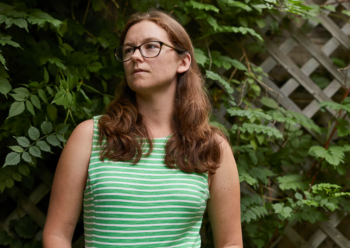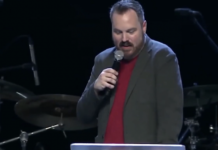A convinced atheist, Rachel Gilson thought Yale University would be the perfect opportunity to “dive in” to same-sex attraction as a freshman, but after reading Mere Christianity her thoughts changed.
“I had sort of heard of Jesus before in my life, of course, but I always thought of him kind of as a lame cartoon character,” Rachel says on a 700 Club interview. “But instead I started to realize: ‘No, Jesus is alive and powerful and interesting and loving and he’s offering me something that I can’t get anywhere else.’”
Her 2004 conversion to Christianity led to a re-orientation, not of her sexual “orientation,” but of her entire life. Today, she still struggles with same-sex attraction, but she submits her feelings to God no differently than anyone who feels attraction outside of marriage.
“It’s been a big part of my journey to figure out, who owns me?” says Rachel, who has written a book Born Again This Way about her testimony. “Or is it my desires, or is it Jesus Christ?”
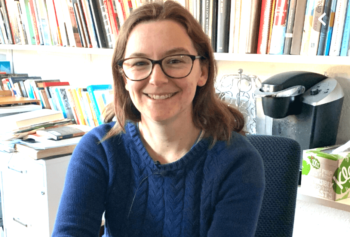 There’s a growing tendency among homosexuals to revise Biblical doctrine to assume God accepts homosexuality as a valid expression of sexuality, Rachel says. This movement represents a pushback against the unaccepting Christian church.
There’s a growing tendency among homosexuals to revise Biblical doctrine to assume God accepts homosexuality as a valid expression of sexuality, Rachel says. This movement represents a pushback against the unaccepting Christian church.
“They’ve seen a church be unfriendly or unwelcoming to LGBT people. Sometimes they’ve, seen Christians respond to gay and lesbian people in ways that don’t look like Jesus would have acted towards outsiders,” Rachel says. “They basically do an overcorrection. They say, ‘Well that type of exclusion doesn’t look like love, so maybe we got the words wrong.’”
Rachel grew up in a small conservative town. Because her parents never went to church, she couldn’t figure out God.
“I didn’t grow up in a household that went to church or read the Bible,” she remembers. “As I started thinking about you know, where did all this come from? What are the big ideas of the world? I just didn’t see Christianity as a valid source of the answers.”
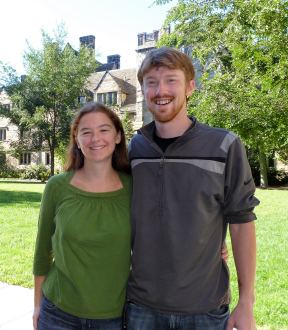
She had just broken up with a girlfriend when she carted off to Yale College. “I thought being at college is gonna be a great place for me to actually live out” same sex attraction, she says. “But before I had a chance to really dive in there, that was when I met the Lord. I think He saved me from going too far down that path.”
Coming to Christ for Rachel, really, was no different than anyone lost in their sin.
“No matter what our orientation is, we all need the grace and the truth of Jesus Christ,” she says. “If we have just the grace without the truth, it’s, all fuzzy, but it doesn’t produce any change. But if we only have the truth without the grace, we end up crushed.”
Rachel counsels people exiting the LBGTQ lifestyle to not worry if they can’t “pray the gay away.”
It’s enough to look at the Bible’s definition of marriage and embrace it as normative. Two options: either marry or stay single, but either way you need to submit to Christ, she says.
“God can give us the strength through the Holy Spirit to say ‘yes’ to Him and ‘no’ to temptations, because every one of us faces temptations,” she says. “Single people face temptations. Even married people experience being attracted to people who aren’t their spouse.
“Our battle for righteousness, for lived holiness is very similar.”
What does Rachel say to people lost in the LBGTQ community?
“God is for them and not against him,” she says. “Jesus had no obligation to leave the blessedness of the Trinity and experience the life and the death that he did for our sake. No one made him do that. He chose to do it because He loves us.”
If you want to know more about a personal relationship with God, go here
Max Devantier studies at the Lighthouse Christian Academy in Santa Monica.

